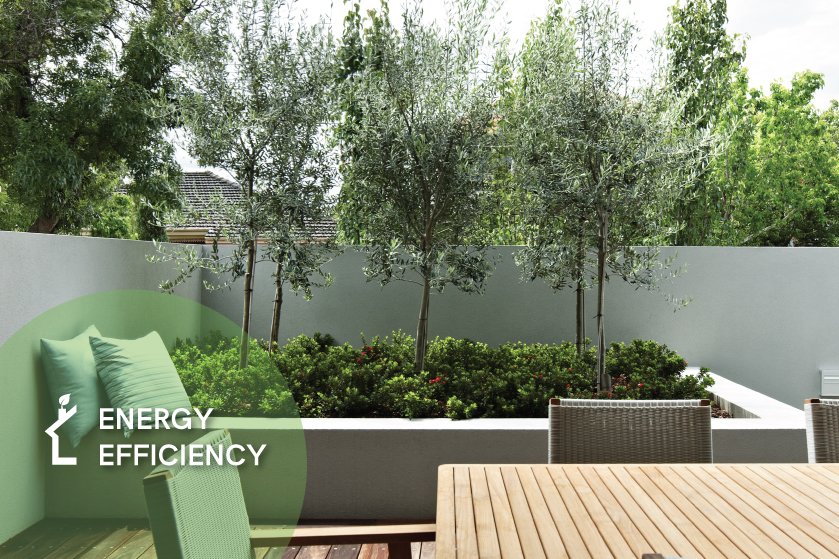
Energy Efficiency - six key points to consider
Melbourne is known for long chilly winters and at times, very hot summers. The cost of gas and electricity has risen dramatically over the last decade, and will continue to rise for the foreseeable future. As a builder who is actively conscious of the environmental impact of building and renovating houses, DDB Design continues to explore ways to reduce energy consumption in the homes we build.
Here are the six main ways DDB Design increases the energy efficiency of the homes we construct:
1. Double Glazing
Our homes incorporate a huge amount of window glazing, so the type of glass we use plays a major role in determining how energy efficient the house will be. And in our homes, double glazing is a must. We typically use Low-E (Thermally efficient) glass which has a special reflective coating on the outside. This coating is designed to greatly reduce heat loss and heat gain through the glass. From a functional aspect, it also helps with privacy and looks great on modern homes.
2. Water Capture and Storage
All DDB Design homes play their part in utilising what nature already provides, as a natural and economic means to water use. All of our home builds store and recycle storm water run-off by having one or two storage tanks incorporated into the landscape and build process. The water is pumped into the home to flush the toilets and/or strategically designed to irrigate the garden. Whilst this is not mandatory here in Victoria, it just makes good sense. Best of all, implementing a water capture and storage system doesn’t wear the burden of a large cost, plus, it adds to your energy efficiency rating!
3. Insulation
DDB Design has always had a very “bullish” attitude when it comes to insulation. We design and build our homes to maximise the amount of thermal and acoustic insulation used in the floors, walls and ceilings. This ensures that the house is as thermally efficient and acoustically comfortable as possible. We also commonly use ‘rigid board’ insulation both underneath on-ground and also for suspended concrete slabs. This hugely enhances the efficiency of the ‘in-slab’ hydronic heating systems.
4. Hot Water Systems
Next to heating and air conditioning, the hot water system is the biggest consumer of energy in a home. The type of hot water system chosen can also greatly affect water consumption. Keep in mind, the type of system and installation solution should reflect the environment and design of the home. For a medium-sized house (up to 270m2), DDB Design uses what is referred to as a ‘gas boosted solar hot water unit’. For larger houses (greater than 270m2), we recommend high capacity gas storage hot water units connected to a continuous flow ‘ring main’. This runs throughout the house and has the added benefit of delivering hot water virtually instantaneously whilst minimizing water waste. Fore more information, click here.
5. Solar Power Systems
Thanks to improving technology and government grants, the cost of installing power systems has significantly reduced, however, the cost of electricity continues to steadily rise. Almost all our clients now decide to install a solar power system into their new home or renovation. DDB Design and our clients love the ROI that a solar power system provides, and it is continuing to improve.
The only limiting factors with solar power at present are;
(a) the available roof area for solar panels and;
(b) the budget near the end of the project.
Yet there are ways to work with these limitations to ensure a sufficient system can be incorporated into the build.
6. Hydronic Heating Systems
DDB Design have previously prepared a detailed summary of the pros and cons of different heating systems. Please click here to check out all the information on heating systems for consideration. Our professional preference and the type of heating system most of our client’s choose is Hydronic Heating. For Melbourne winters, Hydronic Heating has three significant advantages over other systems.
a) high energy efficiency when using high efficiency, condensing gas boilers
b) affordability of both installation cost and running cost
c) it creates a very comfortable, even temperature throughout the home;
d) greatly enhances the livability of a home.
There are many energy efficient solutions that can be considered for the build of your next home. Here at DDB Design, our experts will suggest the most energy efficient and cost effective means that suit your needs, and can work with you on a solution that suits your lifestyle and preferences.
